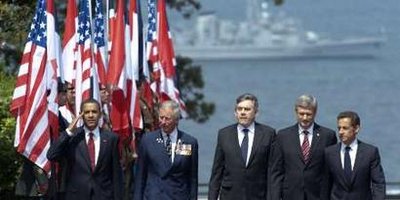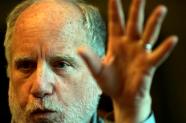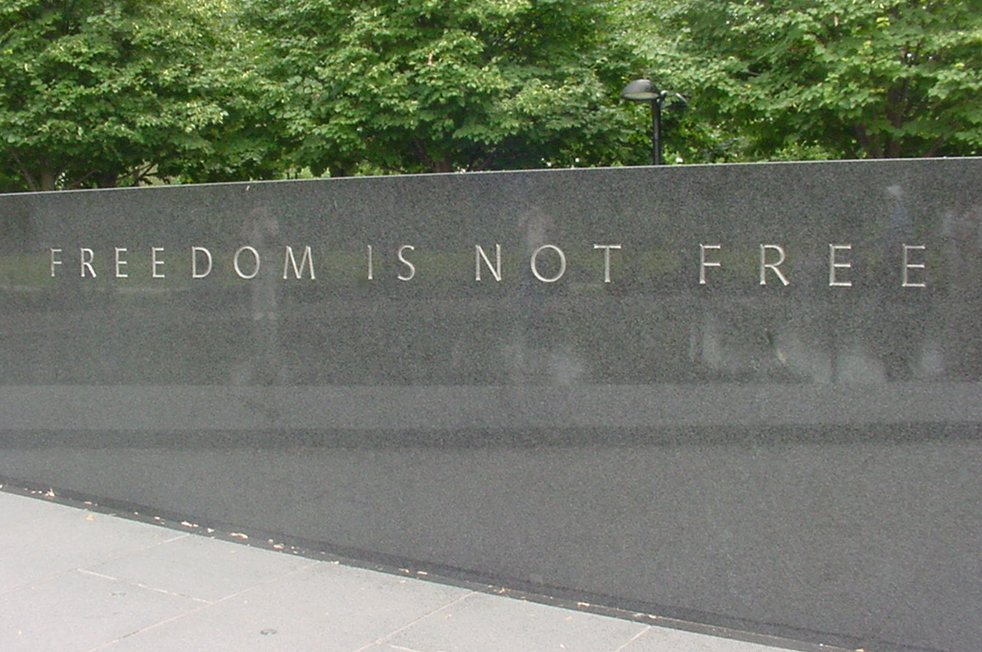Good show Mr. President I loved this!
Civil War Books
Got 4 great books that need to be reviewed, here they are:
First up is Wars within a War: Controversy and Conflict over the American Civil War (Civil War America), University of North Carolina Press. As you might assume, the book centers on the social, political and military issues that existed within the war itself and for both sides. From the publisher, “The twelve essays in Wars within a War explore the internal stresses that posed serious challenges to the viability of the opposing sides in the Civil War as well as some of the ways in which wartime disputes and cultural fissures carried over into the postwar years and beyond.
Comprised of contributions from leading scholars, this volume extends the discussion of controversies far past the death of the Confederacy in the spring of 1865. Contributors address, among other topics, Walt Whitman’s poetry, the handling of the Union and Confederate dead, the treatment of disabled and destitute northern veterans, Ulysses S. Grant’s imposing tomb, and Hollywood’s long relationship with the Lost Cause narrative.”
Next is the new release of the paperback edition of The Shenandoah Valley Campaign of 1864 (Military Campaigns of the Civil War), edited by Gary W. Gallagher, University of North Carolina Press. Once again this is a collection of essay by leading historians of the Civil War.
The second, or is third?, new biography on “The Rock of Chickamauga” is out and we’ve got a copy. General George H. Thomas: A Biography of the Union’s "Rock of Chickamauga", by Robert P. Broadwater, McFarland Press.
Finally, The 25th North Carolina Troops in the Civil War: History and Roster of a Mountain-Bred Regiment, by Carroll C. Jones, McFarland Press. This look like a very nice regimental history and can’t wait for it to be reviewed.
There you have it!
The Best of the Best in World War 2 Books
In honor of the 65th Anniversary of D-Day, here are just a few good World War II books on my book shelf:
David M. Kennedy is a well known historian. His best work, perhaps, is Freedom from Fear which deals with America from the Great Depression to the end of World War 2. But here I want to mention his equally satisfying book, The American People in World War II: Freedom from Fear, Part Two (The Oxford History of the United States, V. 9) (Pt. 2). Superbly written, it covers American social, political and military evolution from the “Agony of Neutrality” to the the Arsenal of Democracy, to the Home front.
Rick Atkinson’s The Day of Battle: The War in Sicily and Italy, 1943-1944 (Liberation Trilogy) is Vol. 2 in a trilogy of books covering World War 2. All are excellent, but this one I like as it covers a campaign that is not well known and certainly overshadowed by the Eastern and Western European fighting. This is an excellent and entertaining read.
Retribution: The Battle for Japan, 1944-45 (Vintage), by Max Hasting is a must read in my opinion. An exhaustive study of the Allies struggle against Japan in the closing years. From the bloody fighting at Iwo Jima to the decision to drop the atomic bomb. The research is top notch and the writing engaging.
Jon Meacham’s Franklin and Winston: An Intimate Portrait of an Epic Friendship is a light and breezy read, yet contains keen insights and thoughtful reflection of one of the more dynamic political relationships in modern times. These two important leaders ultimately stood up to evil and helped to conquer it.
We as Americans are proud of our contribution to the war effort in Europe, yet we at times take too much credit. The most brutal and easily the most destructive fighting took place on the Eastern Front where Germans and Russians did everythng they could to kill each other. The fighting involved not hundreds of thousands (like the Western Front after D-Day), but millions of men. The Russians did the brunt of fighting in Europe, easily. So I offer you Andrew Nagorski’s The Greatest Battle: Stalin, Hitler, and the Desperate Struggle for Moscow That Changed the Course of World War II. A great book that exposes the true hatred each side had for the other, and the desperate struggle that indeed took place.
Endgame, 1945: The Missing Final Chapter of World War II, by David Stafford is an exceptional book that reveals the conditions and issues that the Allies had to deal with during the closing months of World War II in Europe. The aftermath of total war, fighting the pockets of radical Nazi guerrilla fighters, and the broken and shattered condition of Europe. A great read that gets into detail on what it was like in Europe in 1945.
You can’t have a “best” book selection for World War II without mentioning one of B.H. Liddell Hart’s books. Hart is/was perhaps the first and foremost World War II military historian and expert. This renown military historian tackles the strategic side of the German war machine in his book, German Generals Talk.
Finally, I give you War Without Mercy: Race and Power in the Pacific War, by John W. Dower. Total war did not just exist in Europe. America and Japan fought a desperate and bloody battle in the Pacific where racism and hatred existed, just as it did in Europe. Dower’s book is sobering and insightful.
Well there you have it, happy reading!
PS- please post comments on your favorite World War II books!
Obama marks D-Day’s solemn 65th anniversary

As promised in an earlier post, “Obama marks D-Day’s solemn 65th anniversary.” I have not had much time to follow his visits to the Middle East and Europe, hopefully it is going well for U.S.
Obama was right on not to join Sarkozy earlier in the year, as it seems clear that the French leader was trying to manipulate the situation.
Good job Mr. President!
Actor Richard Dreyfuss Promotes a Return to Civics
 From this news article:
From this news article:
NORFOLK, Va. (AP) — Of all the causes actors have chosen to champion, Richard Dreyfuss admits his passion lacks, well, a certain pizazz: Civics.
“Don’t call it ‘civics’ because ‘civics’ is easily the most boring word in America,” Dreyfuss says. “Call it what it is: political power.”
Dreyfuss brings an actor’s dramatic pacing and a historian’s licks to his cause, erasing any notion that this lesson will be boring. He’s bombastic, predictably brash and yet professorial during a 90-minute interview in a bland hotel suite in this seaport, where he was honored at a film festival earlier this year.
Kicked out of college for confronting a professor who criticized Marlon Brando’s performance in “Julius Caesar,” Dreyfuss recently studied at St. Antony’s College at the University of Oxford to develop a curriculum for U.S. public schools.
Called The Dreyfuss Initiative, the curriculum would use scholarly presentations in videos and the Oscar-winning actor “as a storyteller, to engage, enlighten and empower students of all ages in an entertaining way,” according to an outline. Dreyfuss said he would work with civic and educational groups to promote the teaching tools.
While the program has not been used in any classroom yet, Dreyfuss has launched a fundraising campaign to produce videos and the curriculum.
I applaud what Mr. Dreyfuss is attempting to do and welcome it. We have seen, heard, and read much from, well, Liberal Hollywood and media types for years and for a non-Liberal to step forward and promote education and a return to American core values, I love it.
To quote Dreyfuss, “I believe that America is a miracle…” Amen. Though today you would not know it by listening to many among us and who lead us.
Is he a bit misguided? I’m not sure. Naive? Absolutely. But nonetheless, good show Mr. Dreyfuss I hope your initiative takes off!
Upcoming AP Class and Blog
I will be spending most of my summer planning and frankly preparing in multiple ways for my upcoming first run as an A.P. United States history instructor. One thing I am going to utilizing is a blog specifically for the course. Here’s a link to that if interested. IT IS NOT completed and is still in development, however, any advice or input is appreciated.
My first Quarter Schedule is as follows:
1- United States History A
2- —-
3- American Government
4- —-
5- Plan
6- —-
7- A.P. United States History
8- —-
First block I have a general history A class for 2 periods (90 minutes). That is followed up an American Government block, then lunch and plan which gives me a lot of prep time for my final block of the day, AP.
Don’t worry, I will still have plenty of relax time this summer, just trying to get prepared for the upcoming school year this … sad … smart, or both?
Declaring Rights and Limited Government
I am skimming through a very interesting read for my Graduate Class on the United States Constitution by Pulitzer Prize author and historian Jack N. Rakove titled,Declaring Rights: A Brief History with Documents (The Bedford Series in History and Culture), New York: Bedford Books, 1998.
I want to quote a passage for you:
After 1776, however, Americans began to think about constitutions in an entirely different sense. In their new view, a constitution was a document adopted at a known moment of historical time and an expression of supreme law that would henceforth regulate what government could and could not do. (p. 3)
I have posted a few times and in a very general sense about some of the current issues and though they are “current” events they are nonetheless historic. From the election of our first African-American President, to the current Supreme Court Judge nominee, history is happening at what seems to be breathtaking speed.
Some are arguing that our government is transforming not only the economic structure but the constitutional structure of our country. I cannot say for sure where I stand at this moment.
What I can say is that President Obama campaigned as a centrist who wanted to “change” America and do so for the best. Some have argued that there has been no change. From the War in Iraq to the War on Terror, spending, ect., little has changed and campaign promises unfulfilled. It seems Obama is an inflated version of Bush.
I don’t want to comment at this time.
Back to my point. Is looking backward to solve the issues of the current time or the future a good idea? Can the Founders really teach us anything about today and would they even want us to try? No one knows for sure.
Perhaps we should not “look back” but “back track” and see how we got here, and is the here and now really the intended or needed destination?
What I mean, well, consider this: We, the United States, have indeed been a “Progressive” nation, but not just the progressive kind that the current “Progressives” might define. Starting with the Magna Carta of 1215 has American political tradition been evolving (in its English roots at first) in a trajectory that is decidedly in favor of Limited Government? Look at the case history (Yes, Government 101, but think about it):
1215 – Magna Carta -first written instrument to limit the power of government (Monach)
1517 – Protestant Reformation – Martin Luther, nation state power, religion
1689 – Declaration of Rights – after the Glorious Revolution, limited Constitution Monarchy for England
1776 – American Revolution – No taxation without representation, challenges authority of Parliament and Monarchy
1787 – Constitutional Convention – Established a stronger central government but one that was to be “limited” in its power
Big leaps and bounds in these few references.But the trail it leaves is clear. The evolution of limited government is there, but since then what has happened? That will be for a later post.
Here’s an interesting article by someone who is/was an Obama supporter: Ted Rall: It’s increasingly evident that Obama should resign.
I have only read a few pieces by Mr. Rall, but he was obviously in my mind a far left thinker. Interesting.
Federalist or Anti-Federalist
I’ve been doing a lot of reading concerning early American history, specifically the Colonial and Revolutionary periods as I have already started the process of game planning my lessons and handouts, ect. for AP U.S. History. Here’s the list of books I am reading:
Gordon S. Wood, The Radicalism of the American Revolution. New York: Vintage, 1991.
—-, The American Revolution: A History (Modern Library Chronicles). Modern Library Chronicles, 2002.
—-, Revolutionary Characters: What Made the Founders Different. Penguin Paperback, 2006.
Edmund S. Morgan,The Birth of the Republic, 1763-89 (The Chicago History of American Civilization). Third Edition. University of Chicago Press, 1992.
—-, American Slavery, American Freedom. New York: Norton, 1975.
David Northrup, The Atlantic Slave Trade (Problems in World History). Second Edition. Houghton Mifflin Company, 2002.
Joseph J. Ellis, American Creation: Triumphs and Tragedies in the Founding of the Republic. New York: Knopf, 2007.
John Ferling, Setting the World Ablaze: Washington, Adams, Jefferson, and the American Revolution. University of Oxford Press, 2000.
Carol Berkin, A Brilliant Solution: Inventing the American Constitution. Harcourt, 2002.
Pauline Maier, American Scripture: Making the Declaration of Independence. New York: Knopf, 1997.
God, there are more but I will stop before I lose my train of thought! I have left out the Federalist Papers and the Anti-Federalist papers, and tons more that I have on my reading shelf. Anyway, I am trying to immerse myself in as much good scholarship that I can. I am sure there is plenty else I could be looking at, but there it is.
Anyway, I’ve been thinking about about the debates concerning the Founders and the Constitution. With the current mood of some parts of the nation and now with the new Supreme Court Justice nomination, I found myself contemplating where and who we should be taking our cues from? The Federalists or Anti-Federalists? At one moment it seems clear that it is Jefferson and the Anti-Nationalists, but then in another moment it is Hamilton and Madison and the Nationalists (Federalists).
I found something that Gordon S. Wood wrote in his The Radicalism of the American Revolution, in which he argues that though the revolution was not as bloody and radical compared with say the French Revolution, it was still radical in the nature of the post-Revolution society it created. I think he makes a strong argument that the aftermath of the revolution was radical in how it reordered American society, especially in removing paternalism and primogeniture, among other aspects. I am greatly simplifying it here.
But my point is that Wood of course discusses how Americans, generally, viewed government, and I quote:
“Few if any if the common people regarded government as a means by which economic and social power might be redistributed or the problems of their lives resolved.” (p. 87)
That took me back a bit. Though I know that Progressive historians will challenge this comment.
I think if we look at the writings of both Federalists and Anti-Federalists, we will see that both feared a large uncontrollable government; one more so than the other. After all, it is a fact that the Constitution was created first and foremost to limit government by establishing what it could and could not do.
More later…
C
New Book Reviews
Posted over at my other site: SoldierStudies.org:
Memorial Day 2009
Give thanks to all those who fought and died for our country. It’s a great time to join with friends and family ,and have a good time. Maybe take a moment and remember all those who provided for your ability to have today and the freedoms that come with being an American.
